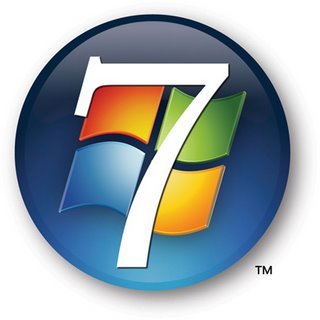Intel, Microsoft Show More Win 7 CPU Efficiency
Windows 7 to get more out of your laptop battery.
By now, most of you who have been keeping abreast with our Windows 7 coverage knows that sort of improvements to expect when you upgrade or purchase a new PC with the upcoming Microsoft operating system. Windows 7 will fix many of the things wrong with Vista, and it'll also be able to get more computing by using fewer resources.
Intel and Microsoft held a press briefing yesterday highlighting some of the improvements Windows 7 has and its effect on hardware. While everyone enjoys greater power efficiency, the real appreciators of it should be laptop users.
The two companies used two identically configured ThinkPads T400s, one running Windows Vista SP2 and the other Windows 7, and compared the two's power usage. The Windows Vista SP2 machine consumed on average 20.2 watts, while the Windows 7 machine consumed 15.4 watts, according to PC World, which could translate to about 1.4 hours of additional battery life.
Such an improvement, as highlighted by the test using two sets of identical hardware, is all made possible on the software level. Both Microsoft and Intel run tests and monitor the interaction between hardware and software layers in hopes of finding areas in which they may optimize.
PC Magazine also reported that Intel revealed internal comparison tests running on a 2.53 GHz Penryn chip showed that Windows 7 had a 2.8 percent improvement at idle as compared to Windows Vista SP2. The advantage jumps to an 11 percent improvement when playing back a standard-definition DVD (18.35 watts versus 16.53 watts).
Intel credits the boost in battery life to something called Windows 7 timer coalescing, whereby a software control minimizes the period in which the processor is in a high-performance, full-power state. Windows 7 makes improvements by synchronizing when different applications call for the CPU, which translates to greater efficiency. While this obviously benefits laptop users, this type of technology should also lead to reduced power bills and heat generation.
Get Tom's Hardware's best news and in-depth reviews, straight to your inbox.
-
icepick314 "The two companies used two identically configured ThinkPads T400s, one running Windows Vista SP2 and the other Windows 7, and compared the two's power usage."Reply
why didn't they test using SAME laptop by installing Windows Vista SP2, test it, then do fresh install using Windows 7? -
jhansonxi I'd like to see how Win7 power management compares to Vista, XP, and Ubuntu or Mandriva Linux with various tasks including word processing, 802.11 and 3G wireless, DVD encoding, and web browsing with Flash. An improvement over Vista isn't saying much.Reply -
grieve jhansonxiI'd like to see how Win7 power management compares to Vista, XP, and Ubuntu or Mandriva Linux with various tasks including word processing, 802.11 and 3G wireless, DVD encoding, and web browsing with Flash. An improvement over Vista isn't saying much.While I agree with you I also don't really care about XP, Ubuntu or Mandriva Linux..Reply
I find the power savings a "bonus" because i will be transitioning to Win7 anyhow. I love it. -
False_Dmitry_II Does that also mean that they fixed the Vista problem of single core applications randomly migrating between cores forcing AMD to keep each core at the same speed instead of clocking down individual cores as was more efficient?Reply -
ejarendt I'd be more interested in seeing a comparison between Windows XP and/or OS X. Improving just about anything compared to Vista is pretty easy - the OS is terrible.Reply
I still think it's pitiful that in eight years, MS hasn't managed to produce an OS that's faster or has better battery life than XP. -
I'm stunned that neither Microsoft, any Linux vendor, nor Apple has managed in 30 years to produce an OS that's faster or has better batter life than...DOS. OS's progress and they consume more resources - that's what they do. I don't know why anyone would expect a newer OS with improved features to be faster _other_ than in the case of Vista->Win7.Reply
-
False_Dmitry_II ejarendtI still think it's pitiful that in eight years, MS hasn't managed to produce an OS that's faster or has better battery life than XP.Reply
That's because EVERY OS system gets bigger as time goes on, no matter how slowly, and more features are implemented. And that includes linux. The fact that windows 7 has the same or less requirements than vista is a pretty good achievement considering what those requirements actually are. Go run windows 95 or whatever Mac OS was around back then on something more recent and it will run much faster than it did back then. -
Shadow703793 Yawn.... hurry up and release i5 (in USA; how come it's already for sale in Europe???)and Win 7 already, Intel & Microsoft!!!!Reply

